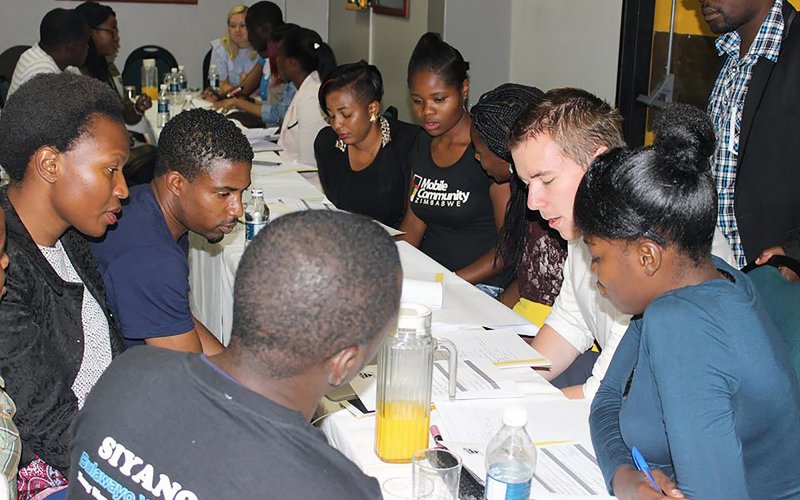Rockefeller College Partners with Zimbabwe Parliament to Strengthen Democracy

ALBANY, N.Y. (Jan. 28, 2021) – The United States Agency for International Development (USAID), through a contract with Southern African Parliamentary Support Trust, has awarded the University at Albany’s Rockefeller College of Public Affairs and Policy a 5-year, $3,039,475 grant to assist the Parliament of Zimbabwe in strengthening its institutional, legislative and oversight capacity.
The grant will be administered through the College’s Center for Policy Research, a multidisciplinary institute focused on applied research, analysis, implementation and outreach across a broad range of public policy areas and governance issues.
For the Zimbabwe Project, the Center will focus primarily on providing technical assistance, trainings and educational programs designed to help the African nation’s parliament strengthen its ability to perform more effectively its legislative, oversight and representative functions and play a more influential role in the governance of the country.
Some of the technical advice will include providing assistance to establish and develop the Parliament’s own Training Academy; offering a public finance executive training program for the staff of the parliamentary budget office; and in cooperation with the New York State Senate, implementing a fellowship program where select parliamentary staff from Zimbabwe will get the opportunity to work with and learn from their peers at the N.Y. Senate.
Sladjana Bijelic of the Center for Policy Research is principal investigator on the project for UAlbany.
“Rockefeller College has decades of experience providing capacity building assistance to legislative bodies around the world,” said Bijelic. “In the case of Zimbabwe, we are particularly pleased to offer that expertise in tandem with educational programs and experiential learning such as that provided through the Senate Fellowship program where the fellows will be able to apply the knowledge and skills acquired in Albany to their work back at their own parliament. This kind of capacity building is not only an excellent learning experience for them but also a great way to ensure sustainability of development assistance.”
“Sladjana and her team have a long and strong track record of important work in the capacity building area and we are proud that she is continuing to do such great work working with the Center for Policy Research,” said Victor Asal, Director of the Center for Policy Research and Professor at Rockefeller College.
USAID leads the U.S. Government’s international development and disaster assistance programs through partnerships with nations all over the world. For the Zimbabwe project, USAID is working with the Southern African Parliamentary Trust (SAPST), who is a prime contractor, and with Rockefeller College serving as the subgrantee.
The overall program seeks to strengthen the capacity of the Parliament of Zimbabwe to improve its oversight of the executive; improve its budget processes and budget oversight; enable informed and timely passing of laws consistent with Zimbabwe’s constitution and ensure that mechanisms are in place for effective representation of the people of Zimbabwe and their interests.




